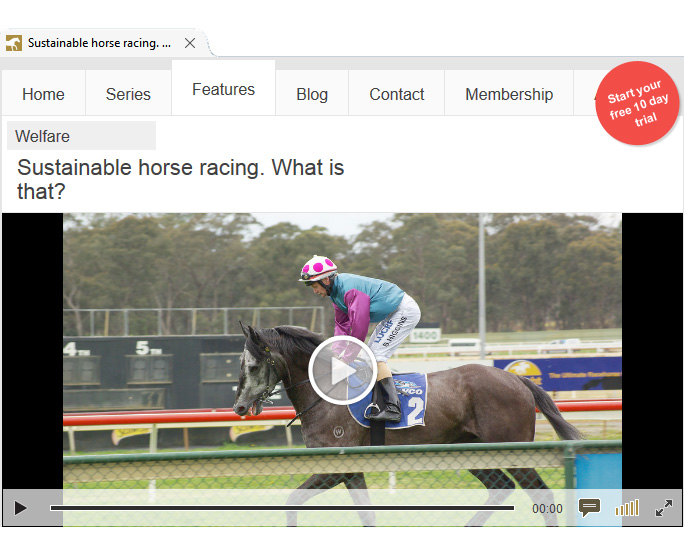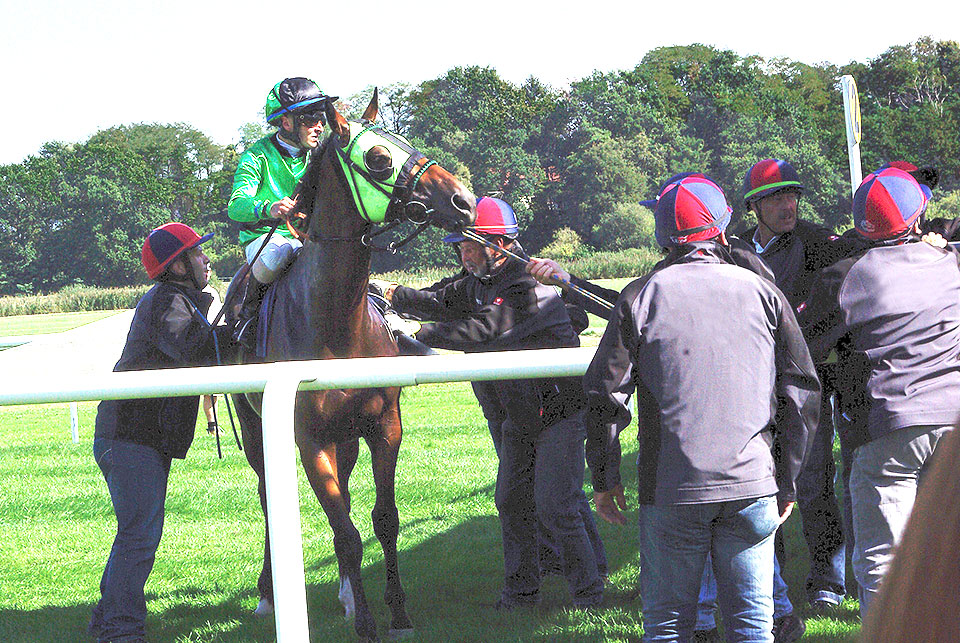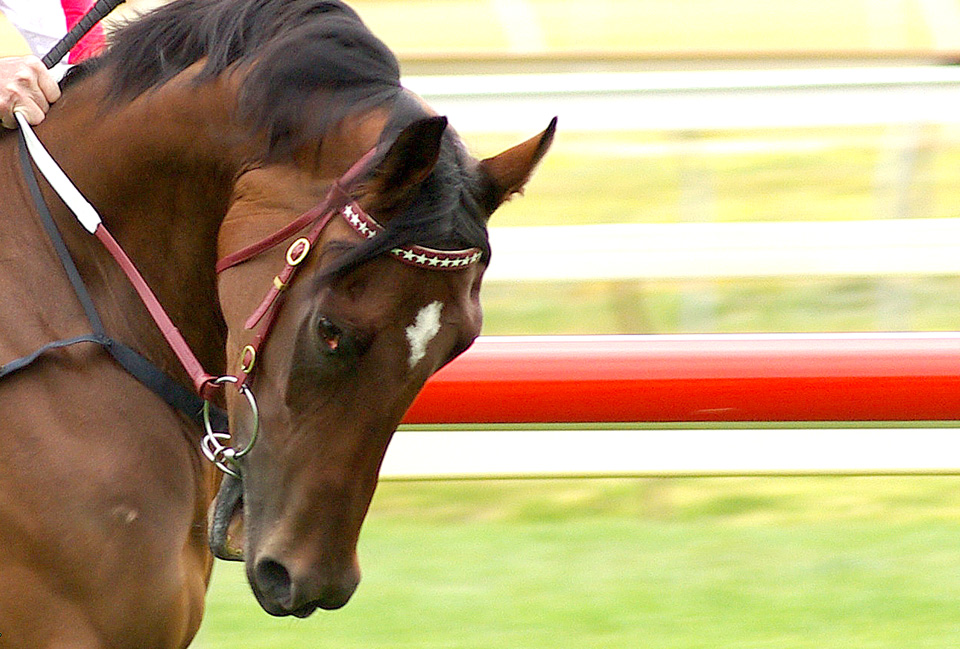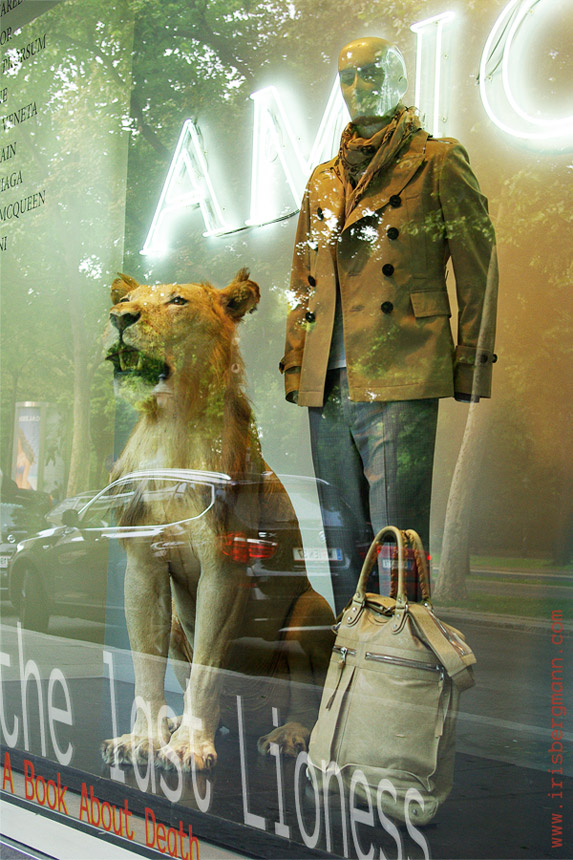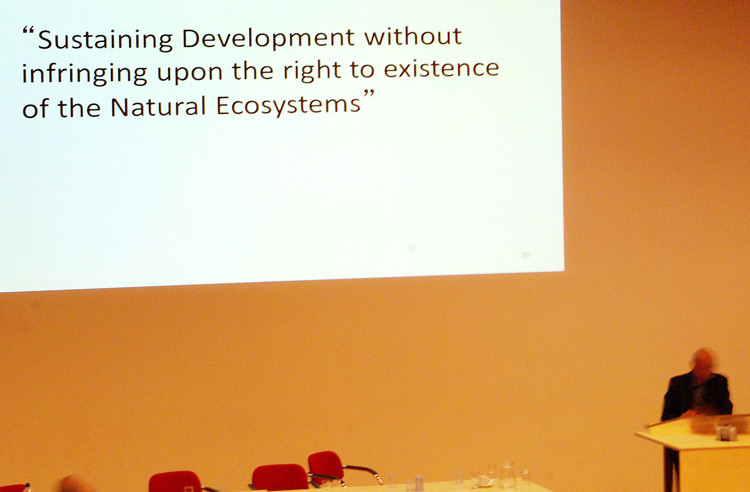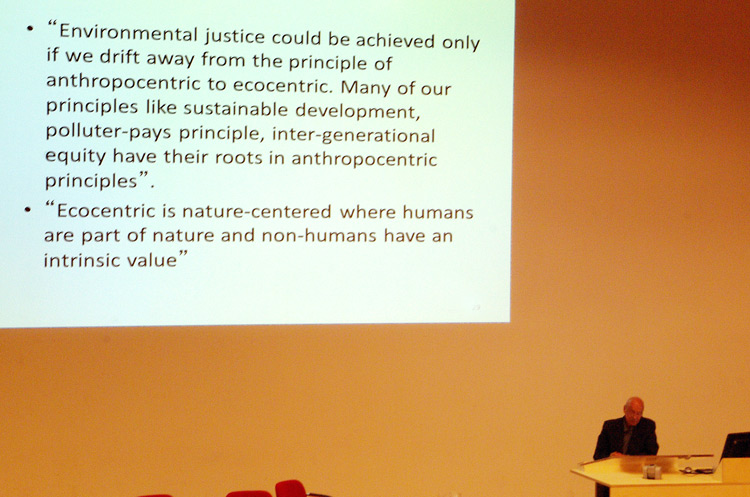On 6 July 2013, ICAS Oceania held their first critical animal studies conference at the University of Canberra, Australia.
Podcasts of the one-day conference can be found here. Themes of the conference included Education and Animals, Film and Literature, Taking action, Approaches to change, Animals and Law.
Of particular interest in the current political Australian context is Professor Steve Garlick who gave a presentation under the theme Approaches to change. His talk was entitled Environmental Sustainability, Cognitive Justice and the Kangaroo. Steve is the founder, first and current president of the Animal Justice Party. The AJP will be standing candidates at the next Federal Election in Australia on 7 September 2013.
The Institute for Critical Animal Studies, ICAS, has currently seven regional offices: Africa, Asia, Europe, Latin America, Middle East, North America and Oceania. A summary of the aim and beliefs of ICAS can be found in their document Introducing Critical Animal Studies [pdf]. There they write:
The aim of the Institute for Critical Animal Studies (ICAS) is to provide a space for the development of a “critical” approach to animal studies, one which perceives that relations between human and nonhuman animals are now at a point of crisis which implicates the planet as a whole.
The term critical animal studies (CAS) has emerged from within animal rights and liberation academics and activists. They differentiate themselves from animal studies which they also refer to as “mainstream animal studies”. They regard the burgeoning field of animal studies as being “strangely detached from the dire plight of nonhuman animals, human beings, and the Earth.” They acknowledge that “scholars working in animal studies have made significant contributions to our understanding of the historical, sociological, and philosophical aspects of human/nonhuman animal relations.” But they argue that the animal studies approach has limitations and does not truly confront the most inhumane practices of animal exploitation such as can be found in industrial animal agriculture, vivisection and carnivorist lifestyles. They believe that the mainstream approach, in purporting to be objective, in fact supports animal exploitation. They argue that it is an illusion that “theory is disinterested or writing and research is nonpolitical”. Therefore, one of their interests is to expose the values and political commitments inherent in mainstream animal studies. Critical animals studies scholars seek an interdisciplinary collaborative approach including perspectives they believe are generally ignored by animal studies such as political economy. They align themselves with other struggles against any form of oppression and hierarchy, including struggles against racism, sexism, speciesism and militarism. They argue that all endeavours to overcome any form of exploitation of humans, nonhuman animals and the Earth are inseparable, referring to Martin Luther King Jr. who proclaimed that “Injustice anywhere is a threat to justice everywhere.”
To fulfill their mission, ICAS has four programs:
1. Development – creating projects, initiatives, organisations, groups and academic departments and programs.
2. Scholarship – publishing position papers, journals, books and hosting forums such as conferences and lectures.
3. Advocacy – activism, outreach, publicity and networking.
4. Education – formal workshops, training, courses and classes.
They have developed a 3 part strategy addressing ecology, humans and nonhumans through holistic, intersectional and interdependent theory and activism:
Holistic – including all life and elements
Intersectional – acknowledging differing identities amongst all life and elements
Interdependent – respecting that all life and elements need one another
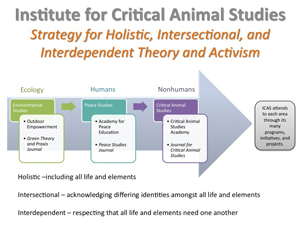
ICAS Strategy
Last edited 15.9.2013
